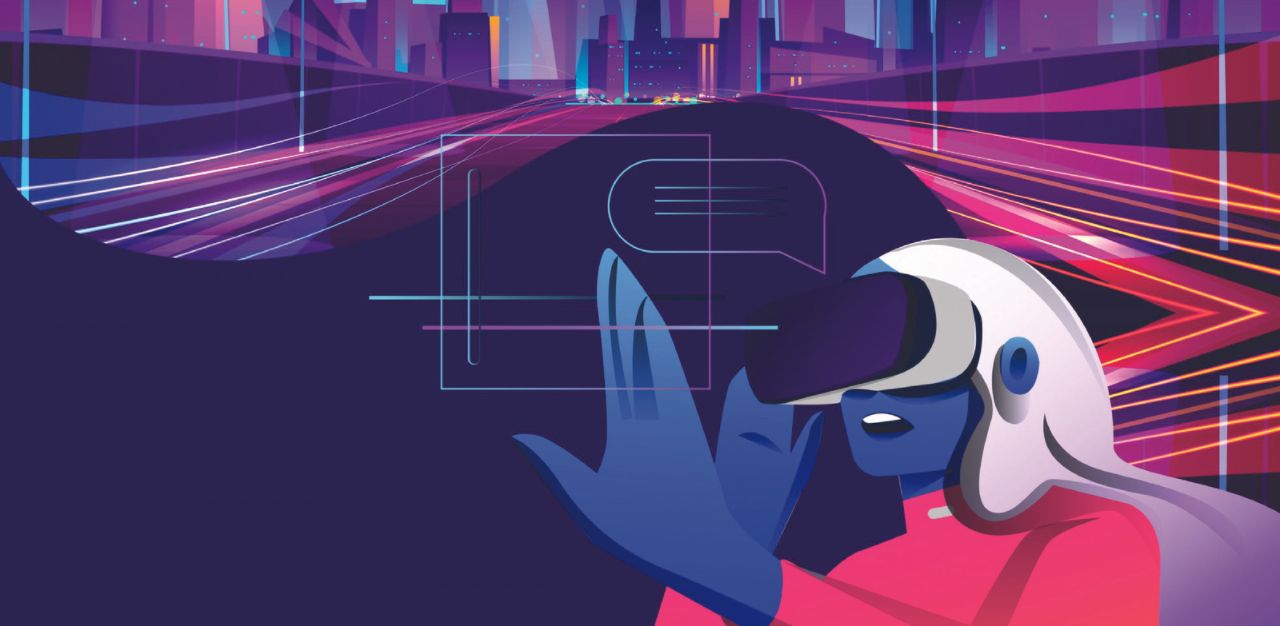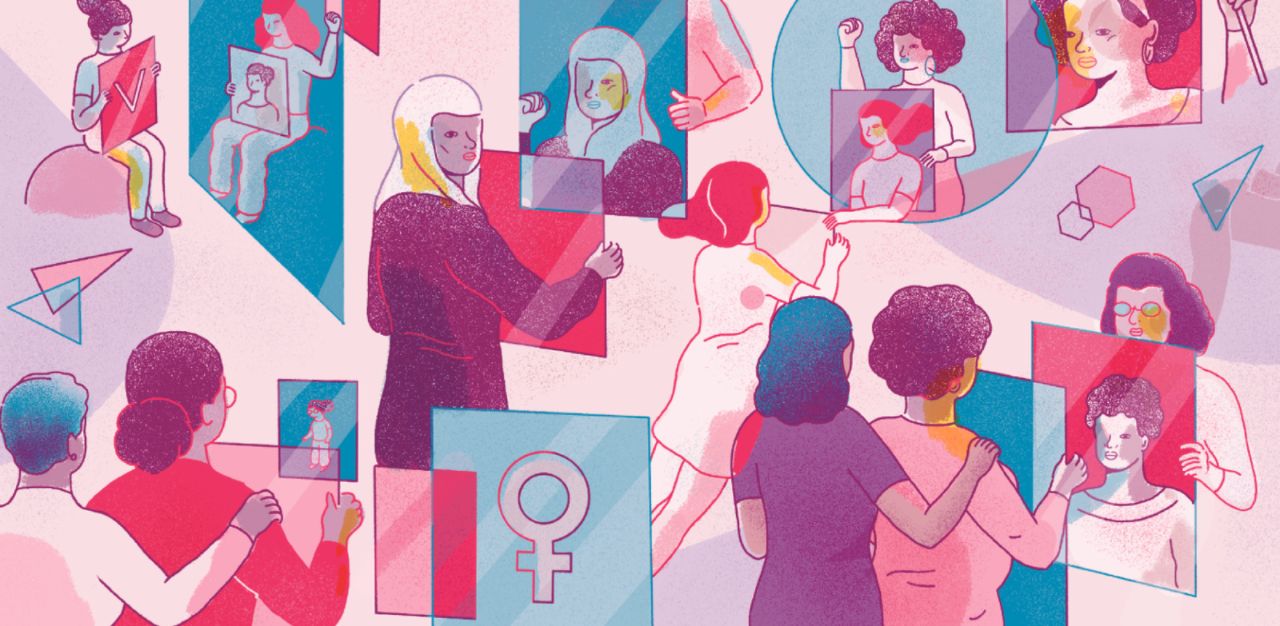As the next great frontier in technology and predicted to be an $800 billion market opportunity, tech giants believe that the metaverse will be an unprecedented evolution of the mobile Internet we know today.

Chief Executive of Facebook Mark Zuckerberg had so much faith in this nebulous concept that he has pivoted the future of Meta to the ambition of designing a unified, infinite virtual universe in which the lines between our physical and digital realities grow more indistinguishable than ever before.
It is difficult to envision what the metaverse would look like in reality, but the pieces are starting to feel more tangible: Meta has released its interconnected series of immersive digital spaces driven by virtual and augmented reality (VR/AR), designed for users to interact seamlessly: Horizon Worlds, Horizon Workrooms, Horizon Venues, and Horizon Home.
As the metaverse takes its baby steps into the mainstream, sexual harassment has already seeped through its virtual door.

A not-so-utopian reality
According to Business Insider, British woman Nina Jane Patel, 43, reported verbal and sexual harassment by a group of male avatars on Horizon Venues in January this year. Disturbingly, they groped her avatar, made sexual remarks, and took screenshots of the ordeal. She was unable to activate the platform’s safety features in time, which included blocking, muting, and reporting another user.
In light of this incident, Meta spokesperson Kristina Milian asserted that Meta will tweak its user interface (UI) to ensure safety functions can be more easily mobilised. However, it remains to be seen if enhanced safety features would prove effective in deterring harassment and predatory advances.
Patel was not the first victim — and, troublingly, she will not be the last.
Last December, a woman beta tester fell prey to harassment while working on Meta’s Horizon Worlds platform, which allows users to socialise and play with up to 20 other avatars. It has been reported that in a post in the beta testers’ Facebook group, the unnamed woman said that her avatar was groped by a stranger in the Plaza, one of the main areas where players gather, and others supported her claim.

The “future” of sexual assault on women: What should be considered a crime in the Metaverse
As virtual reality (VR) technology advances and gains traction, we will only observe a surge in such harassment cases, which begs the question: Are sex crimes any less “real” if they took place in the digital realm?
For a victim of technology-facilitated sexual violence (TFSV), the experience is as distressing as in the physical world and cannot be diminished just because the user has distance. In her peer review paper in 2007, Australian philosopher Jessica Wolfendale wrote that one’s avatar attachment is morally significant. According to her, as the experiences of our virtual entities grow richer, violations of these bodies may, at some point, become as serious as our physical ones.
This is further heightened by the realism created with virtual reality (VR) technology: “…the nature of virtual-reality spaces is such that it is designed to trick the user into thinking they are physically in a certain space, that their every bodily action is occurring in a 3D environment,” said Katherine Cross, an online harassment researcher at the University of Washington. “It’s part of the reason why emotional reactions can be stronger in that space, and why VR triggers the same internal nervous system and psychological responses.”
On the common misconception that virtual harassment is less “serious” and has less of an impact on victim-survivors, Communications Manager at AWARE Singapore Kelly Leow says, “The psychological impact of non-physical harassment, just like that of physical harassment, can be short-term or long-term, and can include depression, anxiety, anger, flashbacks, nightmares, numbness, and denial. In cases of technology-facilitated sexual violence (TFSV), the survivor may experience anxiety and lack of control, especially if she has to return to similar virtual spaces in the future.”
She adds that, due to this misconception, victim-survivors are commonly met with dismissive and victim-blaming responses, even from “well-intentioned family, colleagues, or officials, which can compound their confusion and self-blame, hamper their recovery, and deter them from reporting their experiences to authorities”.
Moreover, perpetrators of online sexual harassment are driven by the same intentions in real life and the virtual space provides them with a platform on which they can give in to their vulgar urges — one where they perceive lighter repercussions, or even none. Dismissing these behaviours bodes worse consequences than condoning “locker room talk”.

Harassment laws in Singapore
While sexual assault in the virtual world is as real as its physical counterpart, the law and ethics continue to be hazy.
In this immersive digital world where we will soon work and play, disputes will naturally occur and users would need legislation to resolve their differences. Moving forward, how can we hold perpetrators accountable — Are there gaps to fill in our harassment laws that allow users to exploit virtual platforms? Will a new legal system emerge, and by placing the power within the virtual world in the hands of a few creators, will this new set of laws end up slanted in their favour?
From a legal perspective, victims can seek protection under the Protection from Harassment Act (POHA) enacted in 2014, which “criminalises behaviour that harasses, alarms, or distresses a victim” online or otherwise. However, legal ambiguity might arise when sexual crimes like assault or rape are alleged to have taken place in a non-physical medium.
Another issue for concern is how such laws can be enforced if the perpetrator resides in a different jurisdiction, or if it proves impossible to locate or identify them.
If you fall victim to online harassment, a good course of action to take would be to gather as much evidence as possible of the encounter — such as capturing screenshots or noting details about the perpetrator — to prepare to make a stronger case in court, if it came down to it.
However, as iterated by Dr. Shivani Gupta, co-investigator at Campus Sexual Misconduct in a Digital Age (CASMIDA), victims enter a distressed state of mind while experiencing sexual violence.
“This reliance on multiple sources or series of evidence might sometimes be problematic and complex,” she voices. “We need to advocate for trusting victims when they come forward to authorities about their experiences, and legislation should be more survivor-centric.”

The entrenchment of sexism and misogyny
Studies have shown that women are glaringly more vulnerable to online harassment and hate than men. As pointed out by Ms. Leow, the responsibility of preventing a case of cyber-harassment does not rest solely on the victim’s shoulders, and neither is the solution to restrict the movements of women, be it offline or online.
With these technologies becoming more popular, it is now even more important for developers to design safe and user-friendly VR environments for all. Nonetheless, we should keep in mind that technology is not the villain.
Cases like this attest to how we also need to address our deeply entrenched gender inequality and instill respect for individuals’ consent and autonomy. “For one, sexuality education programmes in mainstream Singapore schools should be made far more comprehensive, covering respect, empathy, and consent within many different types of scenarios, including online ones,” Ms. Leow concludes.
Join the conversations on TheHomeGround Asia’s Facebook and Instagram, and get the latest updates via Telegram.














